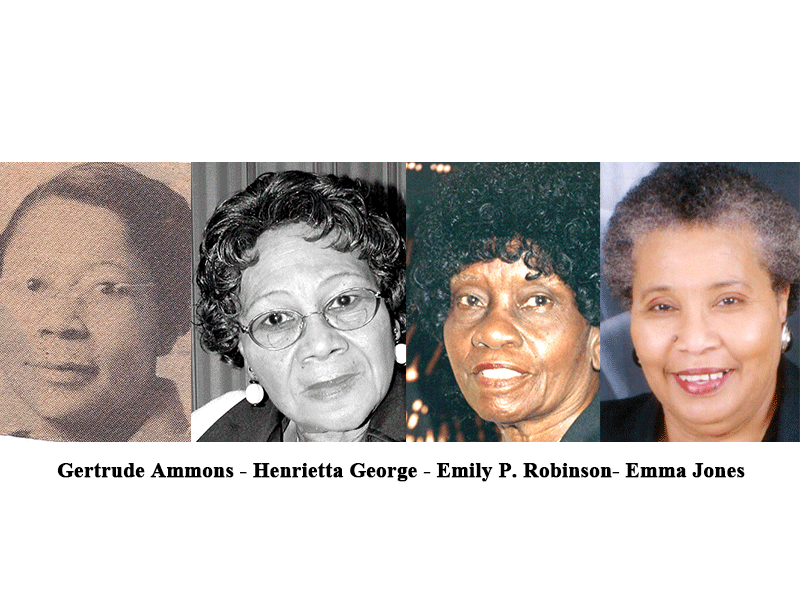March is Women’s History Month, a time dedicated to recognizing and celebrating the achievements of women who have shaped our communities and country. The origins of Women’s History Month trace back to 1981, when Congress first declared a Women’s History Week. By 1987, the observance expanded to a full month, acknowledging the contributions of women across all sectors of society.
In Monroe, Louisiana, four remarkable women, are among hundreds who have left an indelible mark on education, civil rights, and community advancement. Their legacies continue to inspire generations.
Gertrude Ammons: A Pioneer in Black Education
In the 1920s, Gertrude Ammons laid the foundation for public education for Black students in Ouachita Parish. Understanding that education was the key to empowerment, Ammons not only established schools but also trained and disciplined a new generation of Black educators. Her high teaching standards ensured that Black students received a quality education, despite the systemic barriers of segregation. Schools like Mt. Nebo School on Jackson Street, Mineral Springs Community School, and the Chambers Community School became centers of excellence under her leadership. Known for her strict yet effective methods, Ammons earned the respect of both students and teachers, elevating the status of Black educators in the region.
Henrietta George: The Voice for Fairness and Equality
Henrietta George, fondly known as “Ma George,” was a fierce advocate for equal pay and fair treatment for support staff within the Monroe City School system. From 1971 to 1986, she served as one of the first Black members of the Monroe City School Board, eventually becoming its president. Her tenure was historic—not only was she a Black woman leading a predominantly white board, but she also remained unwavering in her commitment to desegregation and equity. With a Christian spirit and an unyielding passion for justice, George fought for better wages and working conditions for custodians, cafeteria workers, and other overlooked employees, ensuring that every worker was treated with dignity and respect.
Emily P. Robinson: The Multifaceted Leader
Emily P. Robinson wore many hats—educator, socialite, writer, activist, and entrepreneur. As the co-owner of Robinson Business College in the 1960s, she prepared hundreds of Black students for professional careers, including positions in corporate America and even the Pentagon. Her influence extended beyond education; she was a cultural contributor who wrote the official song for the City of Monroe, The Ballad of Monroe, which accompanied the waters of the Civic Center fountain. Robinson was also a key organizer of the Renaissance Group, which initiated Monroe’s first Black History Parade. Her commitment to community progress was so profound that a recreation center on Jackson Street bears her name today.
Emma Jones: Breaking Barriers in School Leadership
For decades, Emma Jones dedicated herself to the Monroe City School system as an educator before making history as the first female principal in the district. When she assumed leadership at Parkview Elementary School, she shattered the outdated belief that only men could manage large school populations effectively. Undeterred by skeptics, Jones oversaw nearly 900 students and ran the school with precision and care. She further cemented her legacy by spearheading efforts to rename the school after Dr. Martin Luther King Jr., personally traveling to Atlanta to seek Coretta Scott King’s approval.
Thanks to Emma Jones’ success, Monroe City Schools opened the door for more women to serve as principals, ensuring greater representation in leadership roles. Mrs. Jones celebrated her 88th birthday this month.
A Legacy That Lives On
The stories of these four women—Gertrude Ammons, Henrietta George, Emily P. Robinson, and Emma Jones—highlight the power of resilience, vision, and determination.
As Monroe celebrates Women’s History Month, their contributions remind us that progress is often built on the shoulders of those who dared to challenge the status quo.
Their legacies continue to inspire future generations of educators, leaders, and activists, ensuring that the fight for equality and excellence in education never fades.




